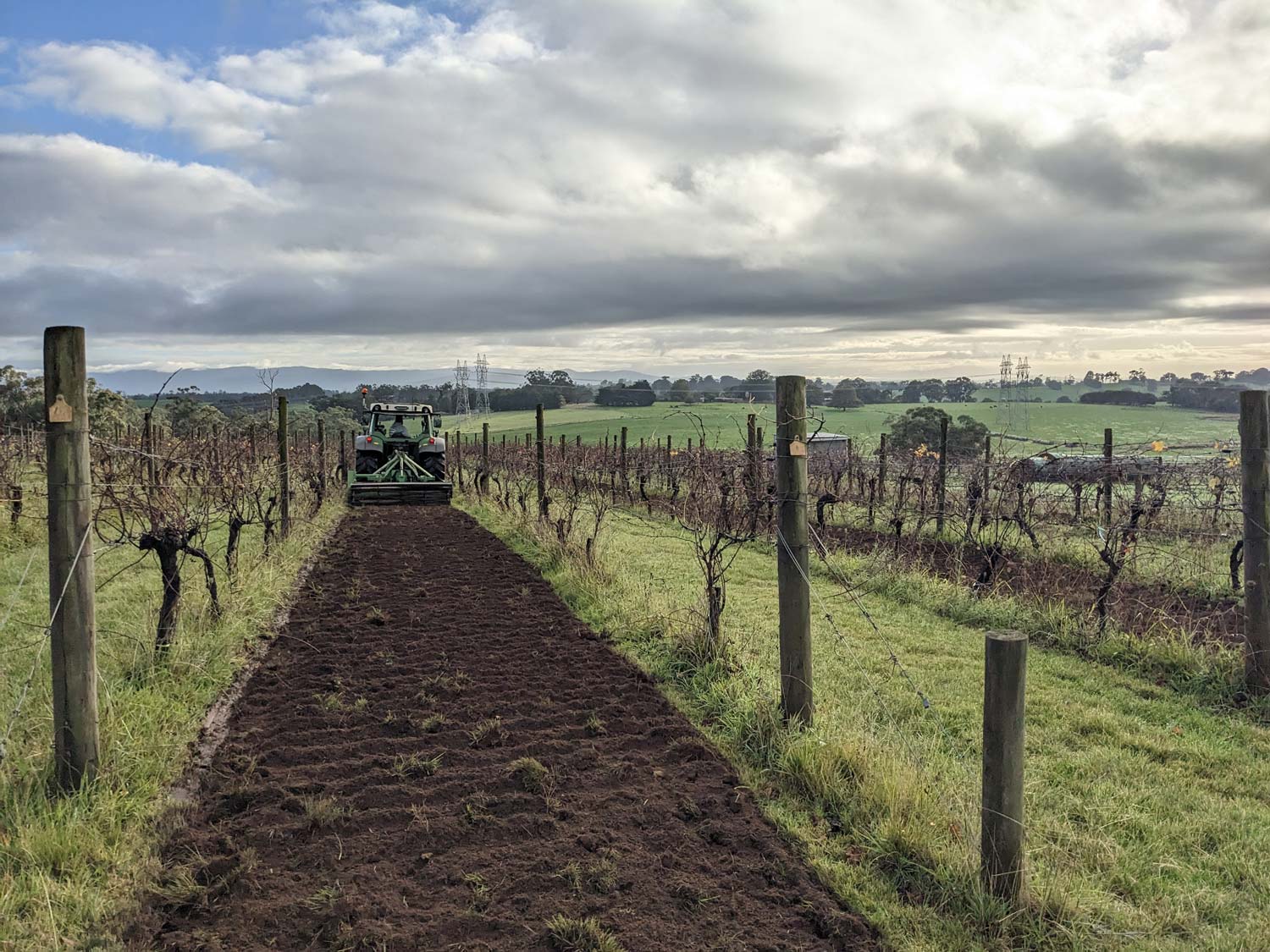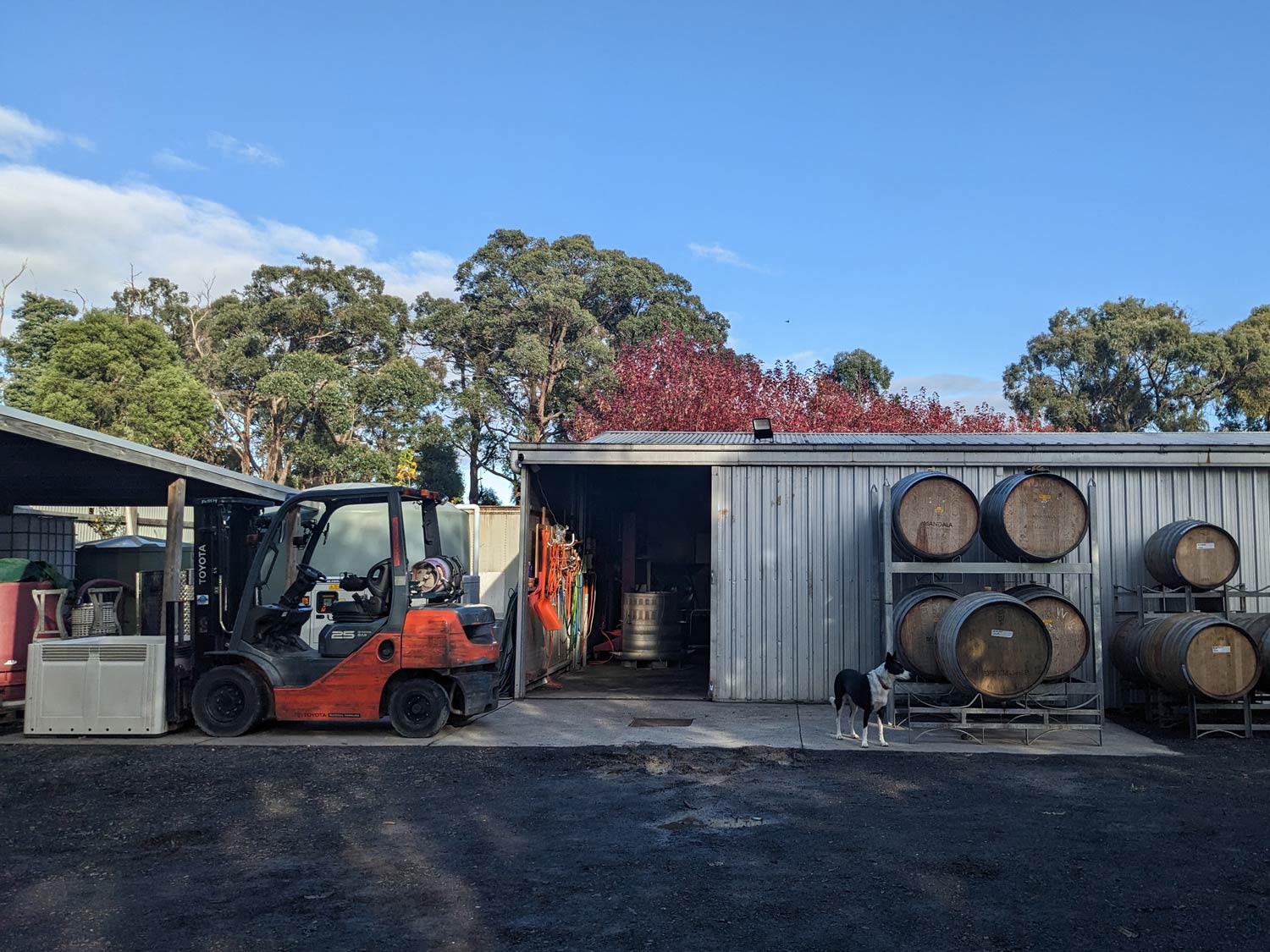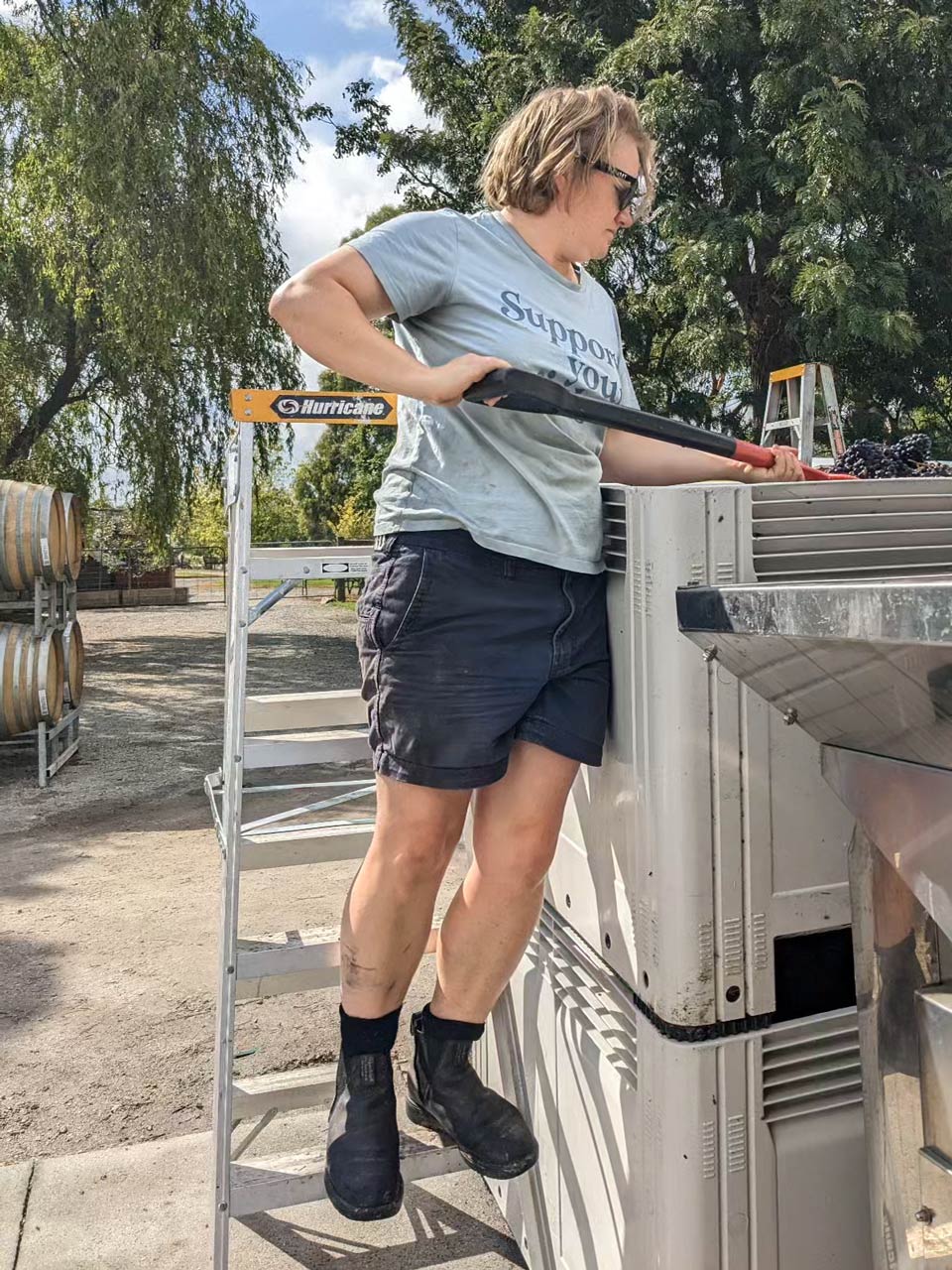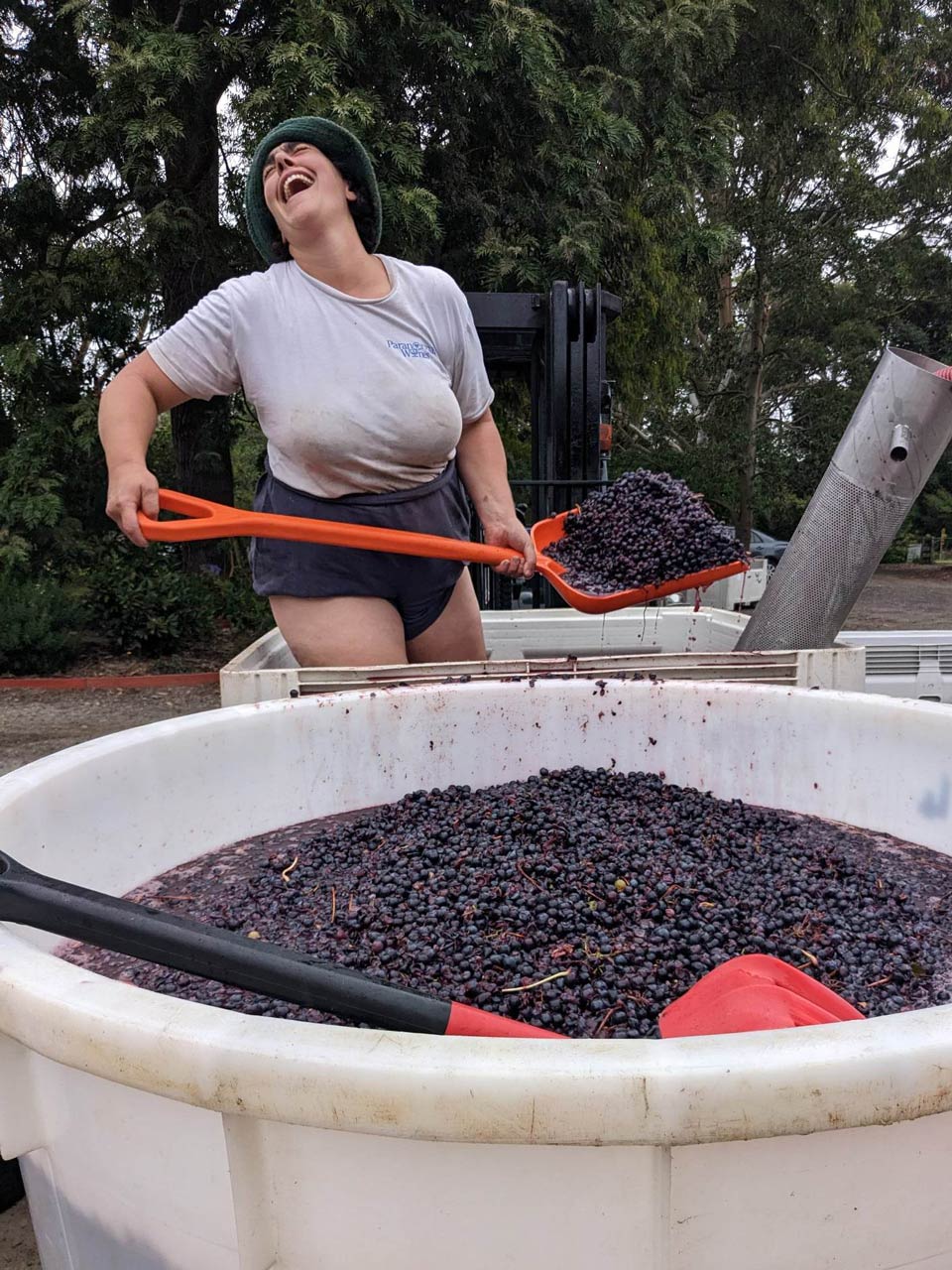In the verdant expanses of Gippsland, Alysha Moscatt and Lucy Kendall have woven a narrative of passion, perseverance, and connection to the land through their work at Allevare Wines. Their journey, rooted in a shared commitment to hands-on approach to in the vineyard and growing wines that echo the voice of each vintage, with a hands-off approach in the winery, unfolds a tale of sustainability, and community.
Kendall, with her academic background and global winemaking experiences, reflects on the essence of their winemaking philosophy, stating, “Our mission at Allevare is to create wines that are not just expressions of the vineyard but also our stewardship of the land. Each bottle is a testament to our dedication to sustainable practices and our respect for the natural environment that sustains us.”
Moscatt, drawing from her hands-on experience across diverse viticultural landscapes, adds, “Working with the soil, understanding its needs, and responding with care and attention is at the heart of what we do. It’s about more than just growing grapes; it’s about cultivating an ecosystem that thrives in harmony with nature.”
Their inaugural vintage in 2020 was a pivotal chapter in their story, marking their return to Gippsland and the beginning of a journey to rejuvenate Moscatt’s family vineyard in Ripplebrook, West Gippsland. They approached this task with a clear vision, shifting towards holistic and sustainable vineyard practices. Moscatt explains, “We saw the potential in these old vines, and we knew that with the right approach, we could revive the vineyard’s vitality. It was about listening to the land and responding with practices that would nurture not just the vines but the entire ecosystem.”
Gippsland is a vast region, sprawling across Victoria’s south-east and right up to the north-east border with New South Wales. It abuts the Yarra Valley to the west, and though it dwarfs that region for sheer size – and many times over – it has less than ten per cent of the plantings. “West Gippsland is high rainfall, cooler temperatures, generally frost free and situated on old ferrosol soils.”
Moscatt describes their commitment to healthy vineyard management at her family vineyard Ripplebrook: “Every year we feel like we get a little bit closer to understanding the site and what suits best. For example, pruning time and pruning yields have been a factor we have reassessed every year. We prune the whole site ourselves and we try to tailor each vine to what we think is best long-term rather than focusing on season to season. When we started managing the site we noticed it lacked a lot of mycorrhizal fungi and there wasn’t much biodiversity. We went to Mary Cole’s workshops and sought out advice on how to recover from trunk disease and improve our soil health. We want to create a holistically managed farm that supports biodiversity. These decisions are hard because it doesn’t always guarantee economic certainty and you 100% do it because you love it. We both have other jobs and shovelling compost out undervine on a weekend might not be everyone’s idea of fun but we want to see the site thrive and get to a point that it produces excellent, site- specific, vintage-specific wines.”
The fruits of their labor are evident in their meticulously crafted wines, particularly the 2022 Allevare Gippsland Single Vineyard Chardonnay (from the Ripplebrook vineyard), and the Sauvignon Blanc (from Maffra Avon Ridge vineyard), where they’re managing the vines across each site. Kendall shares, “Our Chardonnay and Sauvignon Blanc are reflections of Gippsland’s unique terroir, each sip a celebration of the vineyard’s revival and our commitment to authenticity in every aspect of our winemaking.”
Beyond their vineyard, Moscatt and Kendall are active participants in the West Gippsland wine community, where they find inspiration and camaraderie. “Being part of this community, where there’s a shared passion for the region and a collective effort towards sustainability, is incredibly motivating. It’s a reminder that what we’re doing at Allevare contributes to a larger movement towards mindful and responsible winemaking.”
Their journey is a beacon of inspiration, demonstrating how dedication, knowledge, and a deep respect for the land can converge to create wines that are not just enjoyable but imbued with meaning and purpose. As they look to the future, their vision for Allevare is clear: to continue to evolve, to deepen their understanding of the land, and to create wines that resonate with authenticity, sustainability, and a sense of place.






